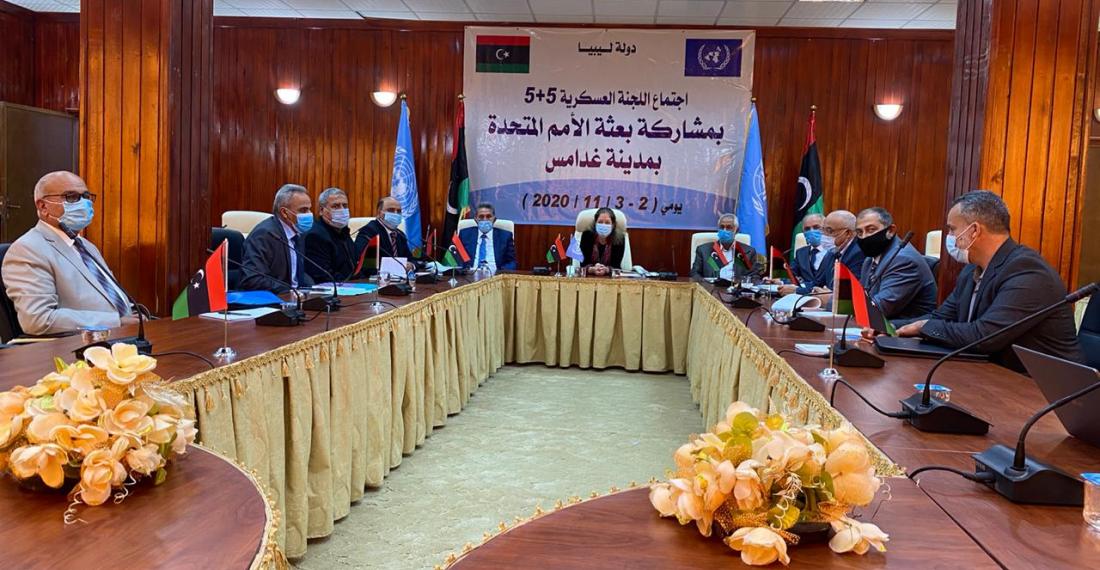Libya’s rival military factions have agreed on a plan for implementing a ceasefire deal reached last month, the United Nations’ acting envoy to Libya Stephanie Williams said, according to Al Jazeera.
The meeting, this time on Libyan soil but far away from either party's stronghold, comes after an earlier agreement in Switzerland last month which was intended to pave the way to a peace agreement.
بحضور الممثلة الخاصة للأمين العام للأمم المتحدة في ليبيا بالإنابة، ستيفاني وليامز، اللجنة العسكرية المشتركة تنهي اجتماعها في غدامس وتتفق على خطوات عملية نحو تنفيذ اتفاق وقف إطلاق النار الدائم في #ليبيا..
— UNSMIL (@UNSMILibya) November 3, 2020
للتفاصيل 👈👈 https://t.co/oIYgt2EvKg pic.twitter.com/1Zps9SU63t
Translation: In the presence of the UN secretary-general’s acting envoy to Libya, Stephanie Williams, the joint military commission ends its meeting in Ghadames and agrees on practical steps towards implementing a permanent ceasefire agreement in Libya
The current Libyan leader from the Tripoli-based GNA, Fayez al-Serraj, retracted his resignation which he announced in late summer. Al-Sarraj will stay in power until a peace agreement is concluded and a joint government is formed with the Tobruk-based House of Representatives. The GNA said that al-Sarraj will stay to avoid a power-vacuum and based on the advice of the UNSMIL.
Several countries have stepped in to mediate between the Libyan factions including France, Switzerland, Morocco and Egypt. Some Egyptian sources report that Fathi Bashagha, Minister of Interior in the GNA is visiting Cairo to meet with senior officials in preparation to announce his as the success to al-Sarraj. These efforts are in line to bring the Egyptian and GNA positions together. Egypt was strongly opposed to the military advances of the GNA earlier this summer. No official statement is made by any parties as the form of a new government is yet to be agreed upon.






